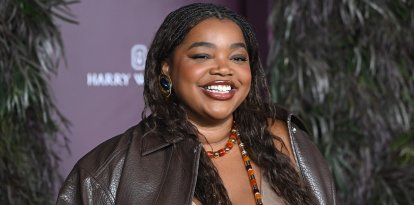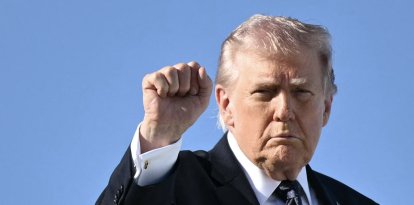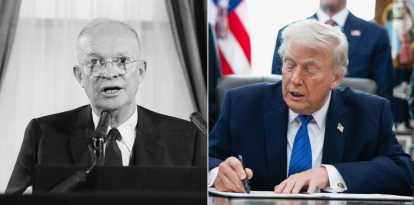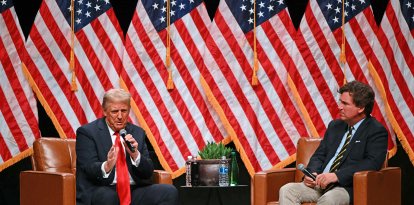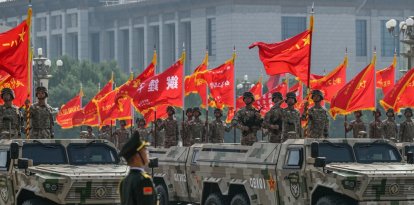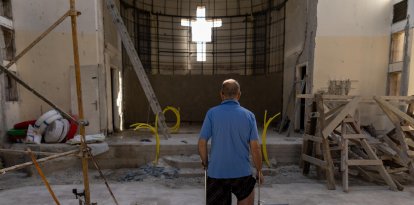Decisive week in Trump's hush money trial begins
The final arguments, the judge's instructions and the jury's deliberation on the historic trial of the former president are happening this week.

(Mike Segar / POOL / AFP)
This week begins the final phase of the case against Donald Trump for payments to porn actress Stormy Daniels. On Tuesday, we will see the final arguments, then instructions from Judge Juan Merchan to the jurors, and, finally, the jury deliberation process will take place. This case will be the only one of all those Trump has against him, and we will know the final verdict before the November elections.
Final arguments
The closing arguments are the part in which both the Prosecutor's Office and the defense have the last opportunity to address the jurors and convince them that Trump is guilty or innocent. Trump's defense will return to the fundamental points it tried to make during the six weeks of the trial.
The little or no credibility of the star witness, Michael Cohen, will be fundamental. Trump's defense even accused the prosecution's star witness of lying during the development of this case. Cohen referenced a specific call to Trump about payments to the porn actress, but the former president's lawyer showed text messages that would prove that that call was actually a communication between Cohen and the former president's bodyguard to discuss an entirely different matter than Daniels.
We'll also likely see defense attorneys recalling that Cohen ended his testimony by confessing that he stole tens of thousands of dollars from Trump. Another point to highlight is related to the witness' motivations. Cohen acknowledged having earned millions of dollars from his podcasts and books in which he talks about the former president.
In addition, the defense is likely to return to the issue that Trump was not his campaign's accountant or lawyer and, therefore, was unaware of the details of the payments or the labels placed on each expense. The issue of Trump's motivations for making the payments to Daniels also played a key role throughout the trial and will likely be key again in closing arguments. Different witnesses stated that Trump was fundamentally concerned about what his wife and family thought about the Daniels story and that the main concern was not the election.
Judge's instructions to jurors
The phase of instructions to the jurors is decisive in any case, but especially in this one, where the decision must be based on electoral campaign law expenses. A field of law that is widely recognized for its level of complexity. In this phase, the judge explains to the jurors the law in relation to the crimes in the case, the interpretation, and the legal elements that should be proven to find the accused guilty.
In fact, one of the most important complaints that the defense made during the trial was about the instructions that will be given to the jurors. The former president's team wanted to call Brad Smith, former president of the Federal Electoral Commission (FEC), as a witness so that he could speak about his experience regarding electoral expense laws. Merchan placed so many restrictions on Smith's possible statements that Trump's defense finally decided not to call him to testify. At the same time, Merchan would not allow him to discuss the law applied to this case. In addition, the judge clarified that he is charged with explaining the law to jurors and not a defense witness.
The former president's team is concerned that the correct indications are not given in a law that is so complex. In addition, as pointed out during the trial, the prosecutor's star witness was allowed several times to ensure that Trump violated the law with his campaign expenses. Regarding the importance of these instructions, Trump's lawyer, Alina Habba, said the following:
"This judge is the one who determines the jury instructions. Jury instructions are the roadmap for jurors and non-attorneys to follow the law. It's going to be critical and, frankly, at this point, I have no confidence "in the fact that this person, who should not be sitting on the stand right now, will do the right thing and instruct the jury appropriately without any persuasion to the prosecution."
Although Smith was not ultimately called to testify, he said publicly that paying for a confidentiality agreement, like the one signed with Stormy Daniels, is not a campaign expense. In that sense, Trump's lawyers have stated that the case makes no sense if these payments are not a campaign expense.
Jury deliberation
To find Trump guilty, the jury would have to reach a consensus. So, with only one of the 12 jurors not considering the former president guilty, the sentence would be hindered. The judge would probably give them new instructions and ask them to continue deliberating until reaching an agreement. If a consensus is not reached, Merchan may have to declare a mistrial.
If Trump were found guilty, he would have the ability to appeal the decision. However, that process could take months, and we would likely see the decision after the November elections. If found guilty, it would be at the discretion of Judge Merchan whether he is sent to jail or not. The punishment for this type of crime is not specified, but it would be extraordinarily rare for a former president, older and with no record, to be sent to serve a prison sentence for a non-violent crime.













